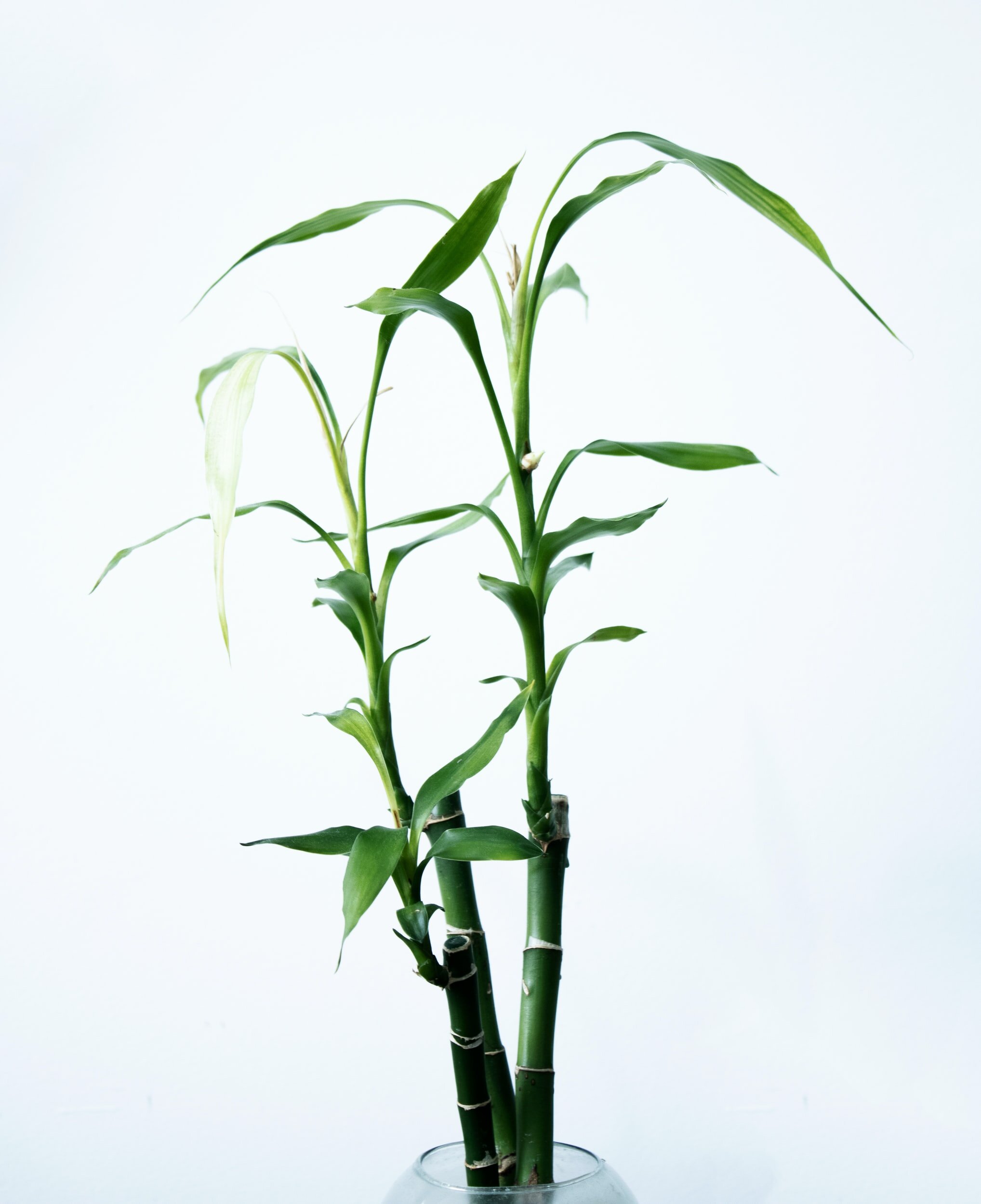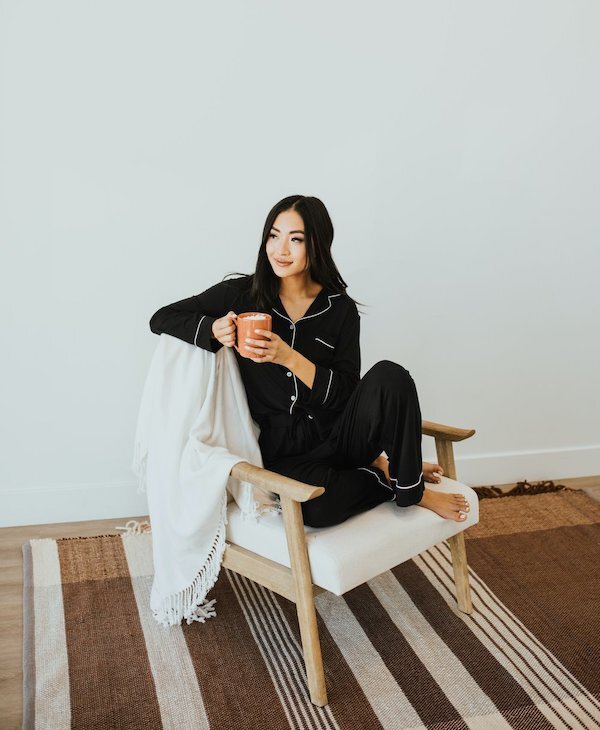Bamboo is popular within sustainable fashion due to how quickly the plant grows and the ability to turn this plant into durable, odor-resistant, comfortable, and moisture-wicking fibers used to make dresses, shirts, pants, underwear, and more.
However, what you’re probably buying is bamboo viscose. Let’s explore!
This post does contain some affiliate links. The Honest Consumer will receive a commission if you decide to purchase, but our commission is at no additional expense to you!
What is Bamboo Viscose?
There has been a lot of confusion and greenwashing when it comes to the term “bamboo clothing”.
In 2015, the Federal Trade Commission (FTC) fined companies claiming to sell “bamboo clothing”, instructing them to accurately label it as “rayon made from bamboo”.
Rayon made from bamboo is also known as bamboo rayon or bamboo viscose. Viscose refers to how the fabric is made.
To understand bamboo viscose, we need to understand viscose.

Viscose is the generalized term for a regenerated cellulose fiber obtained by the viscose process.
The cellulose fiber comes from a plant; it can be eucalyptus, beech, pine, or of course, bamboo.
This means viscose is a fabric that is not quite natural, yet not quite synthetic either, but somewhere in between.
How is this possible? Because of how viscose is made and what is used to make it.
How is Bamboo Viscose Made?
Bamboo viscose is made from the cellulose of bamboo. It is extracted from the plant and turned into bamboo chips.
These chips are soaked in sodium hydroxide and carbon disulfide to make wood pulp.
The pulp is extracted through the use of spinnerets and then solidified using sulfuric acid.
With the viscous consistency removed, it is then spun and combed into threads that are woven into fabric.
These harmful chemicals place a blight on bamboo’s reputation as a sustainable product.
Is Bamboo Viscose Sustainable?
Bamboo as a plant is sustainable as cultivating the bamboo plant can have a lot of benefits for the planet.
Bamboo is a grass that grows quickly with little to no need for pesticides or fertilizers and uses little water.
It is also self-generating, meaning it does not need to be replanted.
Bamboo is thus a sustainable source when it comes to cultivation, but bamboo viscose does have a few down falls when it comes to sustainability.

The problem comes with the chemicals used: sodium hydroxide, carbon disulfide, and sulfuric acid; these can be detrimental to the environment and harmful to people.
A more sustainable and eco-friendly option is when bamboo has been mechanically, and not chemically, processed; this is known as bamboo linen.
However, making bamboo linen can be more expensive and labor-intensive.
The end product is a much courser fabric and thus not as popular in the fashion industry, which is why chemical processes are often utilized.
But with consumers seeking more eco-conscious options, brands are looking for alternatives to toxic concoctions; and carbon-disulfide-based viscose is no longer made within the U.S.
However, bear in mind that many farms and factories from which U.S. companies source and manufacture their bamboo are based in China and India, where regulations may differ.
Is There a Difference Between Bamboo Viscose and Bamboo Rayon?
Bamboo viscose, bamboo rayon, and regenerated bamboo are the same thing.
However, a product labeled as just viscose or rayon is not necessarily made from bamboo.
Remember, it can have other sources, such as pine, beech, or eucalyptus.

What about Bamboo Lyocell?
To complicate matters further, you also get bamboo modal and bamboo lyocell. Modal is similar to viscose. The difference between the two lies in the extra treatment modal undergoes after the spinning of the threads.
This makes the end-product stronger and lighter, ideal for sports gear and underwear.
Bamboo lyocell is the most distinct because it’s made using a non-toxic solvent.
Lyocell is thus the more eco-friendly and sustainable option.
Bamboo-derived fabric, and particularly bamboo viscose, is a tricky product; so when it comes to shopping for clothing or bedding made from this fabric, support brands that are transparent about their processes, accurate about their labeling, and making a concerted effort to be more sustainable.
Be wary of brands that classify their clothing as simply “bamboo” or “made from bamboo”.
5 Eco-Conscious Bamboo Viscose Clothing Brands
Cozy Earth: Bamboo Viscose Pajamas & Home Goods
As the name suggests, this brand is all about keeping you snug and comfortable, whether it’s with their range of bedding, sleepwear, or exercise gear. Cozy Earth is OEKO-TEX certified, makes use of a closed-loop system, and is free of harmful chemicals and dyes.
Achieving quality and sustainability for their products begins with shaving bamboo into soft fibers using a machine process, instead of simply chopping it up.
The result? A soft, luxurious fabric that hasn’t been soaked in a vat of nasty chemicals.
This is J’s Bamboo Viscose Loungewear Made in Canada
Since 2003, This is J is a line of fashionable and functional bamboo viscose loungewear, pajamas and accessories.
The women-owned company ethically produces their clothing in Canada, using quality materials, employing a local workforce, and their creativity to make a unique product.
Sustainable shoppers will find bamboo viscose clothing and pajamas for men, women, and children. Their pajamas feature fun patterns, prints, and matching sets.

Encircled: Bamboo Rayon Basics
Encircled’s modern basics are responsibly made in Canada using sustainable materials.
This ethical clothing brand focuses on versatile multi-way clothing encouraging consumers to invest in high quality pieces that can be worn for years to come.
To encourage transparency and reduce their carbon footprint, Encircled works with local studios in Toronto who cut, sew, knit and dye fabric.
These studios are all near their main office which is a great way for the brand to be able to inspect the garment quality down to ‘the final stitch’ but also a great way to ensure that all of their workers are happy.
Encircled’s bamboo rayon collection features loungewear and workwear for women.
Thought: Fashion Forward Bamboo Viscose
Thought is a clothing company that believes contemporary fashion and sustainability go hand-in-hand.
Thought’s bamboo viscose clothing is usually made with organic cotton keeping the clothing comfy & fashion forward.
Their bamboo clothing line is very versatile featuring bright & fun prints.

Boody: Bamboo Viscose Loungewear & Underwear
Clean, simple, and comfortable, Boody Eco-wear specializes in underwear and loungewear made from bamboo viscose.
Founded by two friends from Australia, the pair strive to deliver a brand that is sustainable, responsible, and eco-conscious.
Boody’s bamboo is grown without the use of pesticides, fertilizer, and irrigation, and their manufacturing entails zero waste and is carried out in a closed-loop system that captures contaminated liquids.
Boody is also certified by Ecocert, OEKO-TEX, and PETA. I’m personally a fan of Boody’s underwear!
Cariloha: Bamboo Viscose Activewear & Home
Offering a range of bamboo viscose clothing for men and women, as well as bedding and bath items, Cariloha is committed to creating an eco-conscious alternative for you and your home.
During the manufacturing process, bamboo is soaked in a GOTS-approved solution via a closed-loop system.
Along with the GOTS stamp of approval, Cariloha is certified by OEKO-TEX, CertiPUR-US, and the Organic Blended Content Standard, as well as being fair trade. Cariloha carries bamboo viscose activewear, basics, and home goods.
As far as comfort and quality are concerned, bamboo viscose is a great buy.
Its source is sustainable, especially in comparison to water-intensive fabrics like cotton and wool and the slew of chemical reactions that create synthetics.
But the manufacturing process for bamboo viscose still needs to be greatly improved.
With continuous and conscientious effort and alternative processes, bamboo viscose can hopefully become the sustainable product it so often claims to be.
Featured
For more ethical & sustainable fashion tips be sure to follow The Honest Consumer on social media, subscribe to our newsletter, & check out the Ethical & Sustainable Brand Directory.











